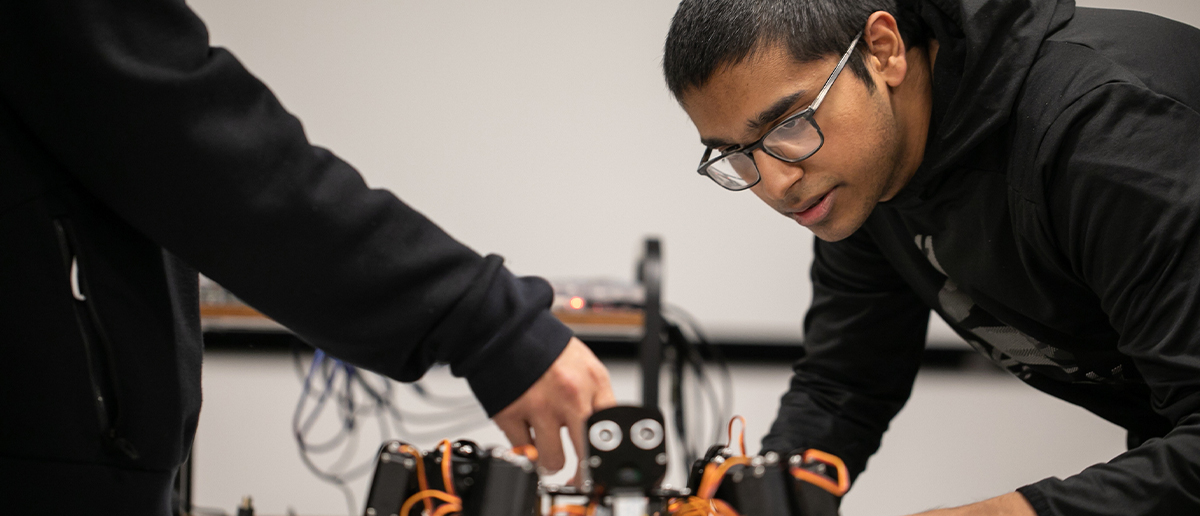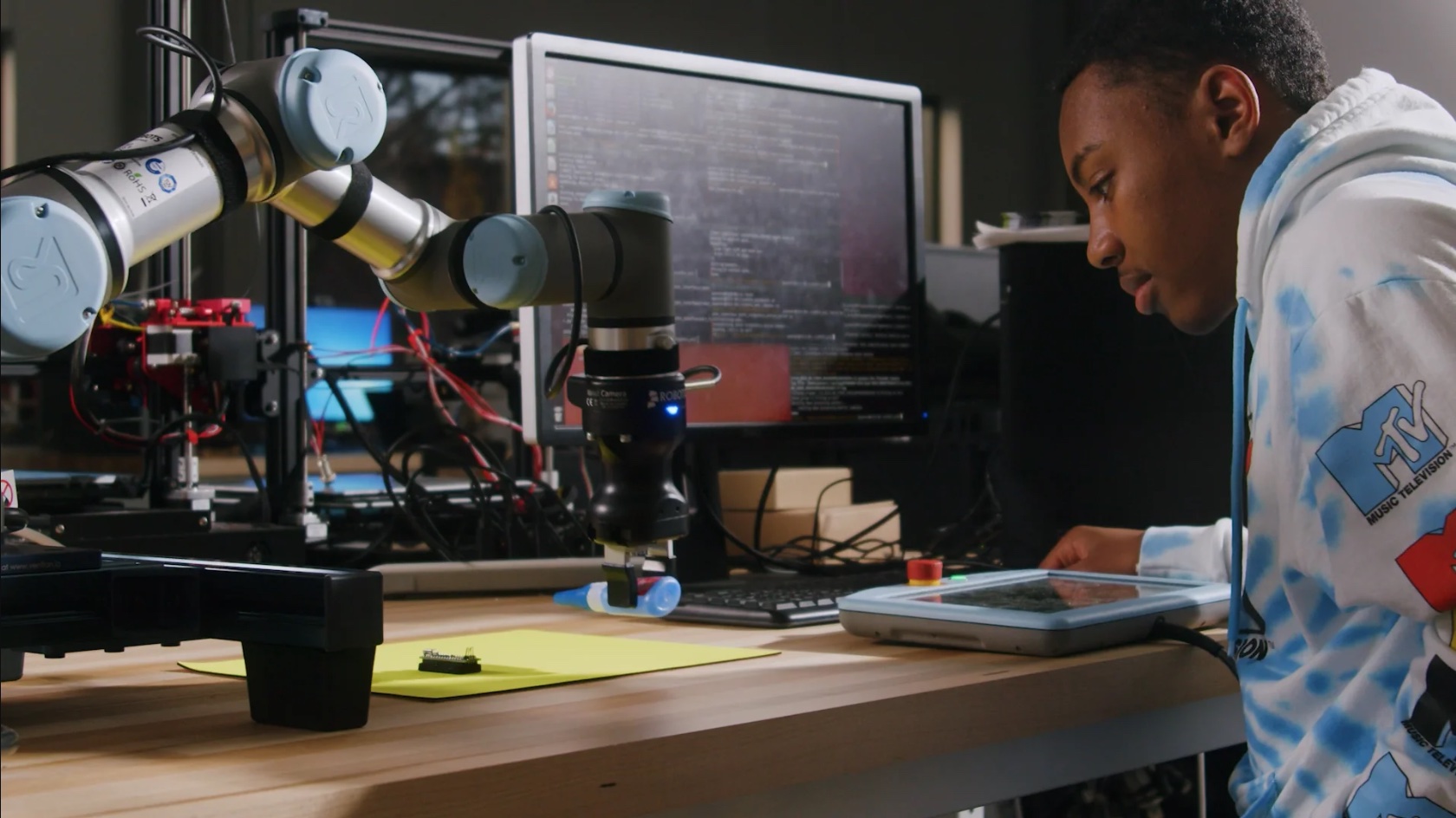
Computer Science - BA
This program combines a set of required core courses with a wide variety of elective courses in the various areas of computer science.
This program helps you open up career options by studying both computer science and computer engineering. You take exciting classes in programming, coding, design and analysis, computation, and electrical engineering.
Bachelor of Science
96
Computer Science and Engineering is our newest major within the department that helps you open up your career options by studying both computer science (software) and computer engineering (hardware). You take exciting classes in programming, coding, design and analysis, computation, and electrical engineering.

The Computer Science and Engineering (CSE) program provides a solid foundation in computer engineering combined with a strong groundwork in software design and development. Our program will give you a thorough understanding of how software is synthesized with hardware, giving you a complete understanding of how a computer works. This strong foundation prepares you to address any computing system challenge across the software-hardware spectrum. In addition, our expert faculty support you with one-on-one instruction and academic advising.
You must complete a total of 96 credits that includes a combination of core computer science, mathematics, science, and engineering courses.
Among the required courses are:
For more information, and to see a complete list of degree requirements, visit the Course Catalog.
Some of the careers you can prepare for are:
Computer Science and Engineering , '22
Daniel, a recipient of the 2022 Senior Regents’ Honors Award, which recognizes high-achieving students, is considering multiple software engineering job offers.
Daniel chose to pursue computer science and engineering out of a desire to be part of an innovative, rapidly evolving field where he can contribute to meaningful technological advancements. He was able to advance that goal at the University of Hartford by gaining a strong theoretical foundation alongside hands-on, applied learning opportunities.
Read more about Daniel.
Computer Science, Computer Science and Engineering,
My classes definitely contributed to my ability to learn new concepts and languages independently and confidently,” says Rachel.

This program combines a set of required core courses with a wide variety of elective courses in the various areas of computer science.

This program prepares you for a career in the computer profession, business, or education, while also allowing you to explore other areas of interest. It is recommended if you are planning to pursue graduate school.

The Computer Engineering program prepares you to bridge the gap between hardware and software with confidence. Through intentional preparation and hands-on projects, you’ll unlock your potential to design embedded systems, develop intelligent devices, and put your purpose to work in a rapidly evolving digital world. See yourself here becoming a success-ready innovator.